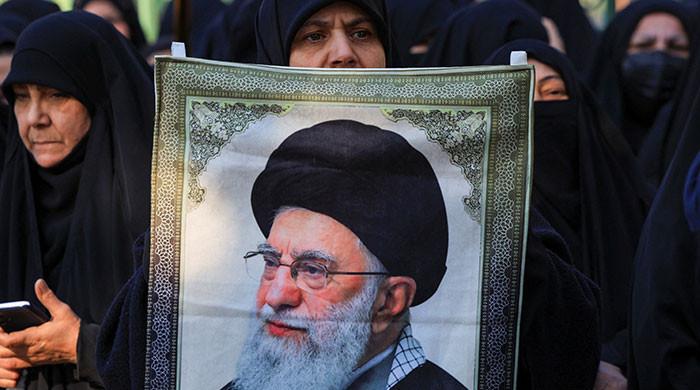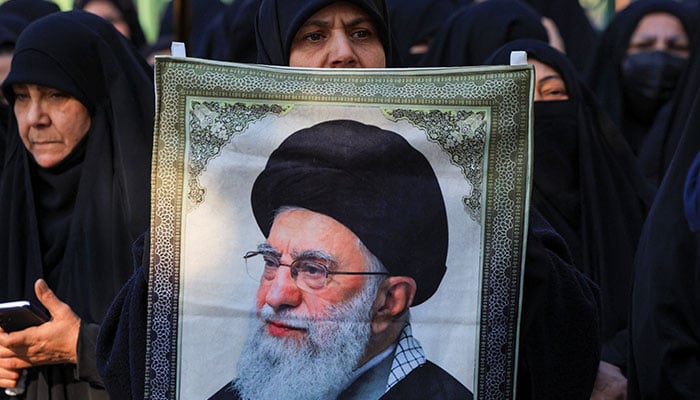Politics
Two years into Gaza war, U.S. Jews increasingly denounce Israel’s actions: Survey


This change in sentiment mirrors a broader global reckoning with Israel’s prolonged assault on Gaza, launched after Hamas’s October 7 attack. From Washington to Sydney, public opinion is turning against Israel’s actions.
A recent survey revealed that 42% of U.S. adults disapprove of the government’s handling of the conflict, while support for sanctions against Israeli leaders is rising in countries such as Australia.
Even within Israel, a majority now believes that the Gaza war should come to an end.
According to a Washington Post poll, a majority of American Jews disapprove of Israel’s conduct in Gaza, with 61% saying Israel has committed war crimes and around 40% describing the campaign as genocide against Palestinians. Nearly a third believe the United States has been too supportive of Israel.
The poll also showed that over two-thirds of respondents hold a negative view of Prime Minister Benjamin Netanyahu’s leadership, while opinions about Israel’s overall military strategy remain divided.
Despite this growing criticism, most American Jews said they remain emotionally connected to Israel and view its survival as essential to the Jewish future.
A similar majority continues to support U.S. military aid to Israel, though nearly one-third reported feeling unsafe in the United States amid rising tensions.
The survey further revealed that over 80% of U.S. Jews are deeply concerned about civilian casualties in Gaza, the fate of Israeli hostages held by Hamas, the safety of Israeli soldiers, and the ongoing instability in the region.
Majorities of respondents said that Israel, Hamas, Netanyahu, and the United States all share responsibility for the continuation of the war.
According to the poll, US Jews disapprove of the prime minister, with 68% rating his leadership of Israel negatively, including 48% who call it poor. By contrast, 32% approve of Netanyahu’s leadership.
A Pew Research Centre survey finds that nearly two years into Israel’s military operation in the Gaza Strip, Americans’ skepticism of Israel’s operation and its government is higher than at earlier points in the conflict.
It suggests about six-in-ten now have an unfavorable view of the Israeli government, with a rising share saying Israel is ‘going too far’.
39% now say Israel is going too far in its military operation against Hamas.
This is up from 31% a year ago and 27% in late 2023. 59% now hold an unfavorable opinion of the Israeli government, up from 51% in early 2024.
16% say Israel is taking about the right approach to the conflict, and 10% say it isn’t going far enough.
A third of adults say they aren’t sure. Large shares of Americans continue to express uncertainty across several questions about the ongoing war in the Middle East and the US government’s response.
A new national survey from Pew Research Centre, conducted September 22-28 among 3,445 adults, finds that 42% of US adults disapprove of the Trump administration’s response to the conflict between Israel and Hamas, while 30% approve. Roughly a quarter (27%) say they are not sure.
Republicans are far more likely than Democrats to approve of Trump’s handling of the conflict and to say he is striking the right balance between the Israelis and the Palestinians. But the shares saying Trump is favoring the Israelis too much have risen in both partisan coalitions.
A third of adults (33%) say the United States is providing too much military assistance to Israel. By comparison, 35% say the US is not providing enough humanitarian aid to Palestinian citizens in Gaza.
Eight-in-ten Americans say they are at least somewhat concerned about starvation among Palestinians in Gaza, Israeli military strikes killing Palestinian civilians and the remaining Israeli hostages not being returned to Israel.
While more Americans disapprove (42%) than approve (30%) of the Trump administration’s response to the conflict between Israel and Hamas in Gaza. About a quarter (27%) say they are unsure.
And 36% of Americans say President Donald Trump is favouring Israel too much in the conflict (up from 31% in March), while 23% say he is striking the right balance. Few (2%) say he is favouring the Palestinians too much. More than a third — 38% — say they are not sure.
A YouGov poll, commissioned by the Australia Palestine Advocacy Network (APAN), shows the majority of Australians want Israel to end its assault on Gaza, with 69% agreeing 53% “strongly” agreeing the Netanyahu government’s military campaign should stop. 14% disagreed.
Australians are supportive of placing tough sanctions on Israel and its leaders for their role in attacking Gaza, with a new poll finding more than half of voters agree the federal government should extend sanctions placed on Russia to Israel.
The survey of 1,500 voting-aged Australians suggests the public is broadly supportive of the government playing a more decisive role in bringing the bloody two-year war to an end.
According to a poll by the Israel Democracy Institute, a majority of Israelis believe the time has come to end the war in Gaza, with the top reason being the endangerment of hostages.
The survey found that 66 percent of Israelis say the time has come to end the war a figure 13 points higher than the result from a year ago when respondents were asked the same question compared to 27% who think or are certain that the time has not yet come, and 7% who are unsure.
The top reason both Jewish (50.5%) and Arab Israeli (34.5%) respondents gave that the war should end is the endangerment of the hostages.
“The one thing that everyone could be sure of as the events of October 7, 2023, unfolded was that Israel would emerge from the Hamas attack a changed country.
It was not just the immediate trauma of the roughly 1,200 dead and 250 hostages, but also how much it upset the assumptions that Israelis had made in the years before that the country was more safe and secure than any time in its history, that the Arab world was slowly accepting the inevitability of a predominantly Jewish state and prepared to push aside concerns about the future of Palestinians, and that Israel’s high-tech prowess could not just generate prosperity but also ensure security as well,” an analysis in the Foreign Policy magazine stated.
“A final reckoning on such a cataclysmic event will take years to emerge. In the meanwhile, the most dire predictions Israel becoming ensnared in prolonged, deadly, and destructive wars with Hezbollah and Iran; a tanking economy; and a deep crisis of confidence have failed to materialize.
The conflicts with Hezbollah and Iran ended in Israel’s favour with relatively little collateral damage. Economic growth has slowed, but Israel has absorbed the shock better than many expected. Trust in the military and many of the country’s key institutions has not declined significantly, if at all.
Israel’s genocidal war on Gaza has claimed over 67,000 lives in the past two years, following Hamas’s October 7 attack, which the Palestinian group insisted was a “historic response” to Israel’s actions against the Palestinians.
“We reaffirm that the Al-Aqsa Flood on October 7 was a historic response to attempts to eradicate the Palestinian cause,” Fawzi Barhoum, a senior Hamas official, said in a televised speech. The attack, according to Israeli officials, resulted in the deaths of 1,219 people.
United Nations Secretary-General Antonio Guterres said he was repeating his previous appeals “with even greater urgency: Release the hostages, unconditionally and immediately.”
“End the suffering for all… Put an end to the hostilities in Gaza, Israel and the region now. Stop making civilians pay with their lives and their futures. “After two years of trauma, we must choose hope. Now.”
Israel’s foreign ministry said, “Two years ago, Israel faced the darkest day in its history… we pray for the return of the hostages still held in Gaza, and we stand united against terror,” “Hamas must be dismantled to end this war,” the ministry said on X. “Light will rise over darkness.”
Besides calling for the hostages’ release, British Prime Minister Keir Starmer suggested pro-Palestinian protests planned for the anniversary of “”that awful day” were disrespectful. “This is not who we are as a country,” the under-fire premier wrote in The Times.
“It’s un-British to have so little respect for others. And that’s before some of them decide to start chanting hatred towards Jewish people all over again.”
Politics
Saudi King Salman leaves hospital after medical tests


Saudi Arabia’s 90-year-old King Salman was discharged from hospital after undergoing medical tests in the capital Riyadh, the kingdom’s Royal Court said on Friday, adding that the results were “reassuring”.
The monarch “left the King Faisal Specialist Hospital in Riyadh today (Friday) after undergoing medical tests that proved reassuring”, the royal court said in a statement shared on state media, having announced his admission earlier in the day.
Saudi Arabia, the world’s biggest crude oil exporter, has for years sought to quell speculation over King Salman’s health.
He has been on the throne since 2015, though his son Mohammed bin Salman was named crown prince in 2017 and acts as de facto ruler.
The monarch’s well-being is rarely discussed, but he has been admitted for surgery and tests on multiple occasions in recent years.
In 2024, the Royal Court said he suffered from lung infections, which he recovered from.
He was hospitalised in May 2022, when he went in for a colonoscopy and stayed for just over a week for other tests and “some time to rest”, the official Saudi Press Agency reported at the time.
He was also admitted to hospital in March 2022 to undergo what state media described as “successful medical tests” and to change the battery of his pacemaker.
In 2020, he underwent surgery to remove his gall bladder.
Politics
Trump welcomes Iran move on mass executions as turmoil eases


- Trump says Iran cancelled mass hangings of protesters.
- Thanks Tehran, calls move ‘greatly respected’.
- Claims more than 800 executions were scheduled.
DUBAI: US President Donald Trump has thanked Iran’s leaders for cancelling what he said were hundreds of planned executions of protesters after a crackdown.
Taking to his social media platform, he said the mass hangings had been called off and praised Tehran for the move, as deadly unrest across the country appears to be easing after a harsh crackdown.
US President Donald Trump, whose repeated threats to act had included a vow to “take very strong action” if Iran executed protesters, said Tehran’s leaders had called off mass hangings.
“I greatly respect the fact that all scheduled hangings, which were to take place yesterday (Over 800 of them), have been cancelled by the leadership of Iran. Thank you!” he posted on social media.
Iran has not publicly announced plans for such executions or said it had cancelled them.
The protests erupted on December 28 over economic hardship and swelled into widespread demonstrations calling for the end of present rule, culminating in mass violence at the end of last week. According to opposition groups and an Iranian official, more than 2,000 people were killed in the worst domestic unrest since Iran’s 1979 Islamic Revolution.
But several residents of Tehran reached by Reuters said the capital had now been comparatively quiet for four days. Drones were flying over the city, but there had been no sign of major protests on Thursday or Friday. Another resident in a northern city on the Caspian Sea said the streets there also appeared calm. The residents declined to be identified for their safety.
Prospect of US attack retreats
The prospect of a US attack has retreated since Wednesday, when Trump said he had been told killings in Iran were easing. But more US military assets were expected to arrive in the region, showing the continued tensions.
US allies, including Saudi Arabia and Qatar, conducted intense diplomacy with Washington this week to prevent a US strike, warning of repercussions for the wider region that would ultimately impact the United States, a Gulf official said.
Israel’s intelligence chief David Barnea was also in the US on Friday for talks on Iran, according to a source familiar with the matter, and an Israeli military official said the country’s forces were on “peak readiness”.
As an internet blackout eased this week, more accounts of the violence have trickled out.
One woman in Tehran told Reuters by phone that her daughter was killed a week ago after joining a demonstration near their home.
“She was 15 years old. She was not a terrorist, not a rioter. Basij forces followed her as she was trying to return home,” she said, referring to a branch of the security forces often used to quell unrest.
The US is expected to send additional offensive and defensive capabilities to the region, but the exact make-up of those forces and the timing of their arrival was still unclear, a US official said, speaking on condition of anonymity.
The US military’s Central Command declined to comment, saying it does not discuss ship movements.
Pahlavi calls for increased pressure
Reza Pahlavi, the US-based son of Iran’s last shah who has gained increasing prominence as an opposition figure, on Friday urged the international community to ramp up pressure on Tehran to help protesters overthrow the present setup.
“The Iranian people are taking decisive action on the ground. It is now time for the international community to join them fully,” said Pahlavi, whose level of support inside Iran is hard to gauge.
Trump this week appeared to downplay the idea of US backing for Pahlavi, voicing uncertainty that the exiled royal heir who has courted support among Western countries could muster significant backing inside Iran. Pahlavi met US envoy Steve Witkoff last weekend, Axios reported.
Iranian-Kurdish rights group Hengaw said that there had been no protest gatherings since Sunday, but “the security environment remains highly restrictive”.
“Our independent sources confirm a heavy military and security presence in cities and towns where protests previously took place, as well as in several locations that did not experience major demonstrations,” Norway-based Hengaw said in comments to Reuters.
Reports of sporadic unrest
There were, however, still indications of unrest in some areas. Hengaw reported that a female nurse was killed by direct gunfire from government forces during protests in Karaj, west of Tehran. Reuters was not able to independently verify the report.
The state-affiliated Tasnim news outlet reported that rioters had set fire to a local education office in Falavarjan County, in central Isfahan Province, on Thursday.
An elderly resident of a town in Iran’s north-western region, where many Kurdish Iranians live and which has been the focus for many of the biggest flare-ups, said sporadic protests had continued, though not as intensely.
Describing violence earlier in the protests, she said: “I have not seen scenes like that before.”
Video circulating online, which Reuters was able to verify as having been recorded in a forensic medical centre in Tehran, showed dozens of bodies lying on floors and stretchers, most in bags but some uncovered. Reuters could not verify the date of the video.
The state-owned Press TV cited Iran’s police chief as saying calm had been restored across the country.
A death toll reported by US-based rights group HRANA has increased little since Wednesday, now at 2,677 people, including 2,478 protesters and 163 people identified as affiliated with the government.
Reuters has not been able to independently verify the HRANA death toll. An Iranian official told the news agency earlier this week that about 2,000 people had been killed.
The casualty numbers dwarf the death toll from previous bouts of unrest that have been suppressed by the state, including in 2009 and 2022.
Politics
Trump threatens tariffs on nations opposing Greenland takeover


- US lawmakers visit Denmark to back Copenhagen and Greenland.
- Denmark strongly rejects Trump’s takeover idea.
- Lawmakers say most Americans do not support plan.
COPENHAGEN: US President Donald Trump on Friday warned that he could slap tariffs on countries that do not support his Greenland takeover plans, as US Congress members visited Copenhagen to give their backing for Denmark and its autonomous Arctic island.
The bipartisan delegation, on a two-day trip to the Danish capital, said the US president’s long-held territorial ambitions – strongly rejected by Denmark – were not shared by the American people.
Europeans have also been showing their backing for Greenland, in a military reconnaissance mission that a Danish general said Washington was invited to and which was linked to what Russia does after the war in Ukraine.
Trump, again insisting the United States needed mineral-rich Greenland for its “national security”, warned that he “may put a tariff” on countries that oppose that stance.
The 11 visiting US lawmakers held talks with Danish Prime Minister Mette Frederiksen and her Greenlandic counterpart Jens-Frederik Nielsen, as well as Denmark’s foreign and defence ministers, parliamentarians and business leaders.
Republican Senator Lisa Murkowski said there was “good dialogue” and stressed it was important to “nurture” ties between the United States, Denmark and Greenland.
“The vast majority” of Americans do not agree that it is a good idea for the United States to acquire Greenland, she told reporters.
“Greenland needs to be viewed as our ally, not as an asset,” she added.
One idiot
The visit follows a meeting in Washington on Wednesday at which Danish representatives said Copenhagen and Washington were in “fundamental disagreement” over Greenland’s future.
Democratic Senator Chris Coons said the purpose of the Congress members’ visit was to “listen respectfully to our friends, our trusted allies and partners here in Denmark and from Greenland”.
The lawmakers were then to return to the United States “and share those perspectives so that we can lower the temperature and have a more constructive dialogue about the best path forward”, he said.
In Greenland’s capital, Nuuk, residents welcomed the show of support.
“Congress would never approve of a military action in Greenland. It’s just one idiot speaking,” a 39-year-old union representative told AFP.
“If he (Trump) does it, he’ll get impeached or kicked out. If people in Congress want to save their own democracy, they have to step up,” said the union rep, speaking on condition of anonymity.
Demonstrations
Trump has repeatedly criticised Denmark – a NATO ally – for, in his view, not doing enough to ensure Greenland’s security.
The US president has pursued that argument, despite strategically located Greenland – as part of Denmark – being covered by NATO’s security umbrella.
The head of Denmark’s Joint Arctic Command, Major General Soren Andersen, said the United States were invited to the military mission, which he said was “about Russia”.
“When the war in Ukraine is over, hopefully with a good result for Ukraine, it is our expectation that Russia will move the resources they have been using in Ukraine to other theatres, including in the Arctic,” he told AFP.
“So, in order to prepare for that, we simply have to step up, train, and that is what we are doing up here.”
But Andersen said he had not seen any Russian or Chinese combat ships in the area in the two and a half years he has been commander.
Military personnel were more visible in Nuuk on Friday, an AFP journalist said, days after Denmark said it was beefing up its defence on the island.
The White House has said Trump’s aim to take over Greenland would not be affected by the European military presence, which French armed forces minister Alice Rufo said was a sign that the continent was prepared to defend sovereignty.
Britain, Finland, France, Germany, the Netherlands, Norway and Sweden have announced the deployment of small numbers of military personnel to prepare for future exercises in the Arctic.
Large demonstrations are planned across Denmark and Greenland on Saturday to protest against Trump’s plan.
Thousands of people have taken to social networks to say they intend to take part in the protests organised by Greenlandic associations in Nuuk and Copenhagen, Aarhus, Aalborg and Odense.
-

 Tech4 days ago
Tech4 days agoNew Proposed Legislation Would Let Self-Driving Cars Operate in New York State
-

 Sports6 days ago
Sports6 days agoClock is ticking for Frank at Spurs, with dwindling evidence he deserves extra time
-
Sports1 week ago
Commanders go young, promote David Blough to be offensive coordinator
-

 Fashion6 days ago
Fashion6 days agoSouth India cotton yarn gains but market unease over US tariff fears
-

 Entertainment4 days ago
Entertainment4 days agoX (formerly Twitter) recovers after brief global outage affects thousands
-

 Fashion6 days ago
Fashion6 days agoChina’s central bank conducts $157-bn outright reverse repo operation
-

 Business1 week ago
Business1 week agoSoftBank reduces Ola Electric stake to 13.5% from 15.6% – The Times of India
-

 Sports6 days ago
Sports6 days agoUS figure skating power couple makes history with record breaking seventh national championship






